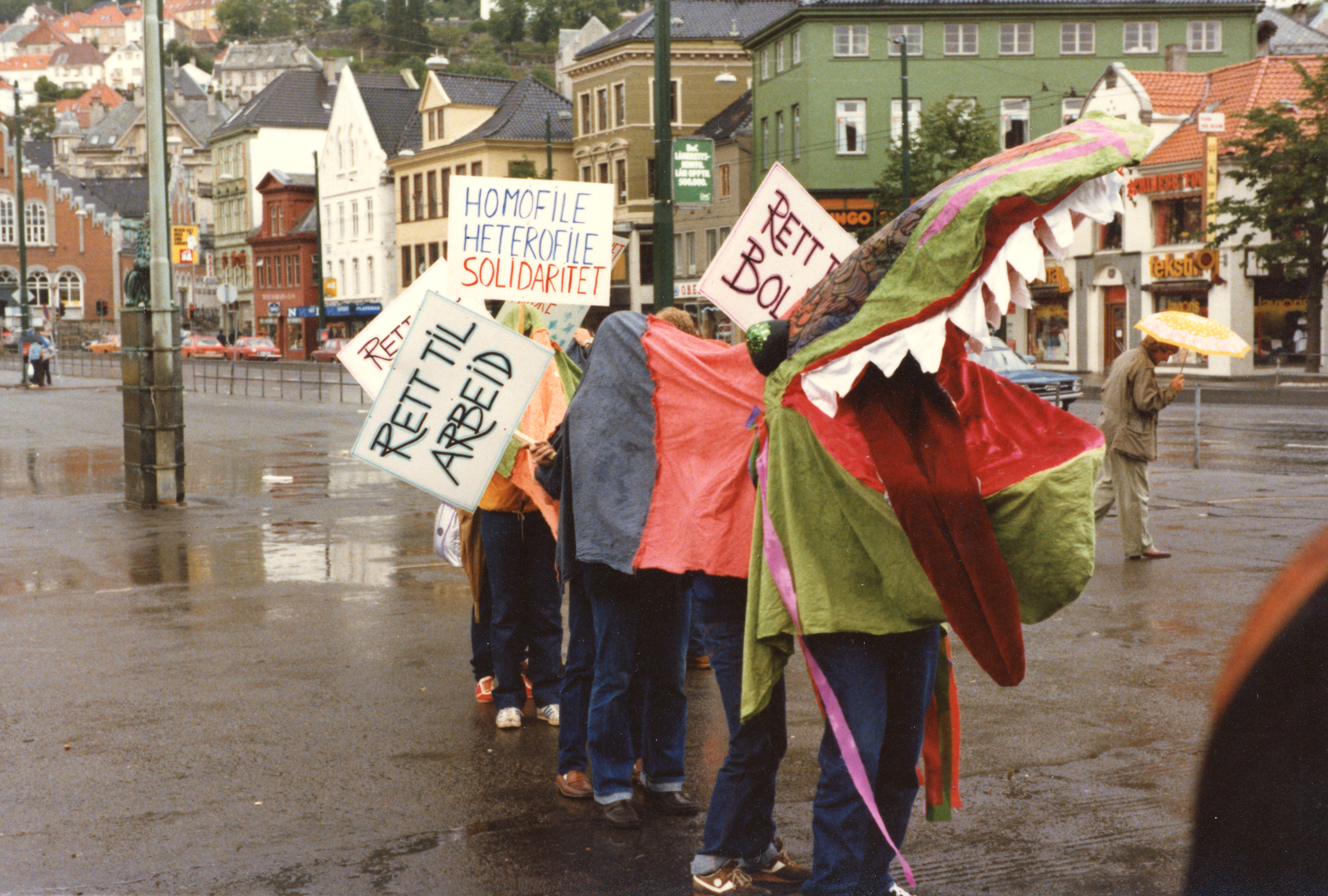Archives for Social Change
Archives for Social Change brings together five independent archives that hold the overlooked and often silenced histories of communities who have fought, organised, and cared for one another in the face of exclusion and oppression. These archives speak not only from the past — they are living practices of resistance and solidarity, shaped by and for those who refused to be forgotten.
Set in Stranges Stiftelse, a former poorhouse for women founded in 1609, the exhibition unfolds across two floors. Materials from Skeivt Arkiv (Norway), Nepal Picture Library’s Dalit Archive and Feminist Memory Project, and the Grindmill Songs Archive of the People’s Archive of Rural India are shown alongside historical records from Stranges Stiftelse itself. Seen together, these images, documents, and objects reveal the particular ways the archive works to collect, record, and shed light on the different lives that have shaped social change — refusing their erasure.
Downstairs, three tables anchor the former common room, where the women who lived at Stranges Stiftelse would gather together. The first explores how archives contribute to and support movements for social change. The second looks at music as a means of gathering, resistance, and solidarity. The third focuses on how spaces — both public and private — can shelter, sustain, and give form to social movements and community life.
Upstairs, five former bedrooms become sites of intimate encounter. In each room, the life of a woman is reimagined through archival fragments: Uma Devi Badi, Tara Ubhe, Bhagirathi Shrestha, Siri Kvalheim, and Asseline Olsdatter. Their stories are told through the words of three writers, each of whom responds to the gaps in the archive. They are not biographies, but invitations to listen across time — to sit with what remains and what is missing.
The exhibition asks: What forms of care and resistance become visible through the act of archiving? And how might we learn from what these archives retain, and from what they exclude? It invites visitors to see archives not as static repositories, but as spaces of care and imagination, where memory becomes a shared responsibility, and where futures are shaped by how we choose to remember.
Skeivt Arkiv (founded 2015) is Norway’s national archive for queer and LGBTQ+ history. Based at the University of Bergen Library, the archive collects personal stories, photographs, publications, and organisational records relating to queer life and activism. Skeivt Arkiv places care at the core of its method, prioritising consent, anonymity, and self-determined representation. Through oral histories, anonymous testimonies, and community collaboration, it documents both public struggle and private resilience, preserving diverse forms of queer memory.
The Feminist Memory Project was launched by Nepal Picture Library in 2018 to document and archive the histories of feminist thought and action in Nepal. Built through public calls and personal contributions, the archive contains photographs, letters, publications, and stories from women who have played a part in Nepal’s social and political movements. It challenges dominant historical narratives by centring voices often left out of public record, and invites reflection on how feminism is lived, shared, and remembered.
The Dalit Archive at Nepal Picture Library gathers photographs and testimonies from Dalit communities across Nepal, with a focus on caste resistance and self-representation. Spanning six decades, the archive includes portraits, family albums, and records of protest and discrimination. It activates these images to challenge historical invisibility and caste-based exclusion, and foregrounds Dalit voices in shaping how memory and justice are claimed. The archive is ongoing, built in collaboration with communities it represents.
The Grindmill Songs Project documents over 100,000 ovi — rhyming couplets sung by rural women in Maharashtra while grinding grain. Recorded by the People’s Archive of Rural India (PARI), the archive contains audio, transcriptions, and translations of songs covering themes of labour, caste, gender, devotion, and everyday resistance. These songs were created by women without formal education, often in kitchens and courtyards, yet they hold histories not found in textbooks. The project centres oral tradition as a form of political memory and shared knowledge.
Stranges Stiftelse preserves the social and architectural history of one of Bergen’s oldest institutions. Founded in 1609 as a poorhouse for women, the current building — constructed in 1751 — is a rare example of intact 18th-century institutional architecture in Norway. Its plan, centred around a communal hall with adjoining sleeping quarters, reflects historical models of collective care and control. Though most residents left few records, psalm books, photographs, and administrative notes offer glimpses into their lives. Today, the site is owned by Fortidsminneforeningen (the National Trust of Norway) and maintained by volunteers. It serves both as a cultural venue and a living archive of how women survived and supported one another on the margins of society.
Part of across, with, nearby
Bergen Assembly 2025
Archives for Social Change
Venue: Stranges Stiftelse
Convener: Ravi Agarwal
Curatorial Advisor: Margareta von Oswald
Coordination: Alex Millar and Sukanya Deb
Commissioned texts:
Uma Devi Badi — Diwas Raja KC
Bhagirathi Shrestha — Diwas Raja KC
Tara Ubhe — Namita Waikar
Siri Kvalheim — Runa Halleraker
Asseline Olsdatter — Alex Millar, based on texts and research by Christopher Harris
With materials from:
Skeivt Arkiv (Norway)
Nepal Picture Library — Dalit Archive and Feminist Memory Project
People’s Archive of Rural India (PARI) — Grindmill Songs Project
Stranges Stiftelse Historical Archive
In collaboration with:
Runar Jordåen and Bjørn André Widvey (Skeivt Arkiv)
Diwas Raja KC, NayanTara Gurung Kakshapati, Shikhar Bhattarai (Nepal Picture Library)
Namita Waikar (Grindmill Songs Project/PARI)
Ida Pettersen (Stranges Stiftelse archive)
Translations:
Readings (voice actors):
Amani Al-Kidwa (English)
Reny Folgerø (Norwegian)
-
Stranges Stiftelse
Klostergaten 28,
5005 BergenWednesday: 12:00–17:00
Thursday: 14:00–20:00
Friday–Sunday: 12:00–17:00
